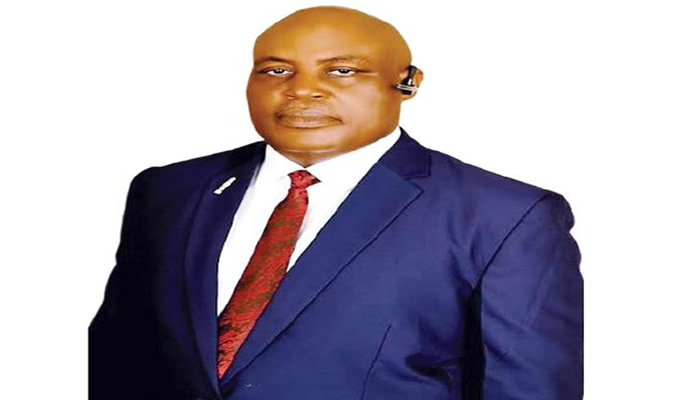
Amid recent calls for the Federal Government to establish commodities boards to manage rising prices of food items, the Managing Director of Okitipupa Oil Palm Plc, Taiwo Adewole, speaks to Oluwakemi Abimbola, on the matter and other economic issues.
Nigeria is currently dealing with foreign exchange challenges. What are the potentials of the country to earn forex in the space where you operate?
Our own belief is this, we are a Nigerian company. Based on where the country is today, the current production level is lower than the local demand. So why do you want to go satisfying the foreign market when there is a market gap locally. Well I’m not closing the window to that opportunity, but we will first of all for satisfy our local market, the local opportunity, before exploring the foreign markets. Our loyalty is to our nation and we would prefer to be part of the economic transformation of our country, rather than looking for opportunities abroad. Whatever we do, if we take what we produce out, we are denying our people and the economy, the local economy, the potential that it has. So we will be part of the group that will contribute to developing our local market satisfying our local demand before looking at export opportunities.
One of the reasons for the pressure on the dollar is that we are importing from farm products. As a leader in this space, how can we get to that level where we are self reliant that we don’t have to start importing some of these products?
That’s why my response is that our focus is on the local market. Now, the more we export our products and there is a gap within locally, you’re going to continue to put pressure on the dollar because your demand will keep rising. We are one of the advocates that Nigeria has no reason to import palm oil, for whatever reasons. If you are a producer, if you are a user of that product, invest locally. Invest in companies, invest in local farmers who are producing these products, so that you can create an economy for them, rather than put pressure on the government to release dollars to you to be bringing in processed palm oil. Oil palm originated from Nigeria. So, our focus should be in reenacting that’s number one position in the world, that we should be sufficient to be able to produce enough for local consumption and then export, that’s my position on this.
In what ways are you adopting technology and innovation in your operations?
Today, you will realise that we are in a digital world, we’re going to be deploying new and highly efficient factories for processing and possibly refining to be able to produce diversified products from all parts of oil palm. We’re also going to deploy new software to run the various processes along the value chain so that the company can take advantage of technology in running its operations.
There have been calls for government to establish commodity boards to manage the rising cost of food. Do you think that is the way to go?
I think we should be looking at free enterprise. Let the government limit themselves to creating the regulations and an enabling environment for businesses to thrive. We have had commodity boards in the past. What value did they bring to the farmers and operators in that sector? I’m not sure I’m comfortable with commodity boards, but let the government provide the right regulations, right policies that will attract foreign direct investments, that will attract genuine businessmen into the into the sector and the business the business sector will thrive. I must let you know agriculture remains the largest employer of labour, creating employment, creating opportunities. So, government should focus on creating an environment that will attract the kind of investment that is required. That is part of what we are talking about today. The idea is for us to be able to expand the scope of our operations, create employment opportunities, create values for people, practitioners, and at the end of the day, become a better for it.
As a player in a sector with critical stake in the Nigerian economy, what are those things that you consider the major challenges and how can we begin to actually overcome them because the sector seems to be no longer attractive to farmers?
I think today in Nigeria, the one single challenge everybody faces today security. Farmers can no longer safely go to the farm and expect that they can come back. We are very happy that the President assented to the creation of state police. For us, we can see that this government is taking some very positive steps to to address frontally the issue of security. Security is everything to everybody. Insecurity creates a big challenge, even to us as Nigerians that we cannot simply go to work and come back or you’re not sure that we can come back. So it was government addresses the issue of insecurity, I believe to a large extent the environment will be safe for us to do our business and farmers to go to their farms.
How far have you gone in your bid to recapitalise the company, especially at this time?
This is a significant step in bringing about the transformation that we have all worked for in the last six years. While we are one of the largest agribusiness in Nigeria today, we believe that a major role or milestone has been reached in our recapitalisation programme, which we started a few years ago. We have gone through the various approval process.
What will the fresh funding be targeted at?
We’re deploying these new funding to new technology to drive the business. We will create the right environment for the company to have greater revenue or greater profitability. I believe with what we have done in the last four years. Okitipupa Oil Palm Plc is set for a great performance, a good share of the market of the oil palm value chain.
Okitipupa Oil Palm Plc today, is a totally rebranded company with far greater potential never explored in past years, what’s the magic?
When we came in 2018, the company was in total comatose with no hope for the future. But today, we want to thank God that it has become a totally different company. It holds the promise for the future, because the result that is coming out today is totally different. The various strategies and drastic decisions we have taken in the last three years, has paid off with great results
In what ways have the rebranding been done?
Well, it has been a continuous re- engineering process. In 2018, when we came in, we started with cashless policy, which gave us the opportunity to have full control of our income. Also, because of the huge illegality going on in our plantations, with the support of the Ondo State government that provided the required security, we were able to have some measures of control of the plantations, which prior to our coming, had been totally taken over by illegal harvesters, some of who even set up illegal mills close to some of our plantations.
That is to tell you the extent we had lost out the company and to prove that it was no longer in the hand of management. The plantations, collectively is the soul of the company. However, in 2020, we had to change strategy, which was very novel and at the end of 2020, our result has shown to us that we were right with the strategy we adopted, we had over 200 per cent return on revenue and for the first time the company has reported a profitability that was enough to wipe our 12 years of consistent losses. This for us, was monumental.





